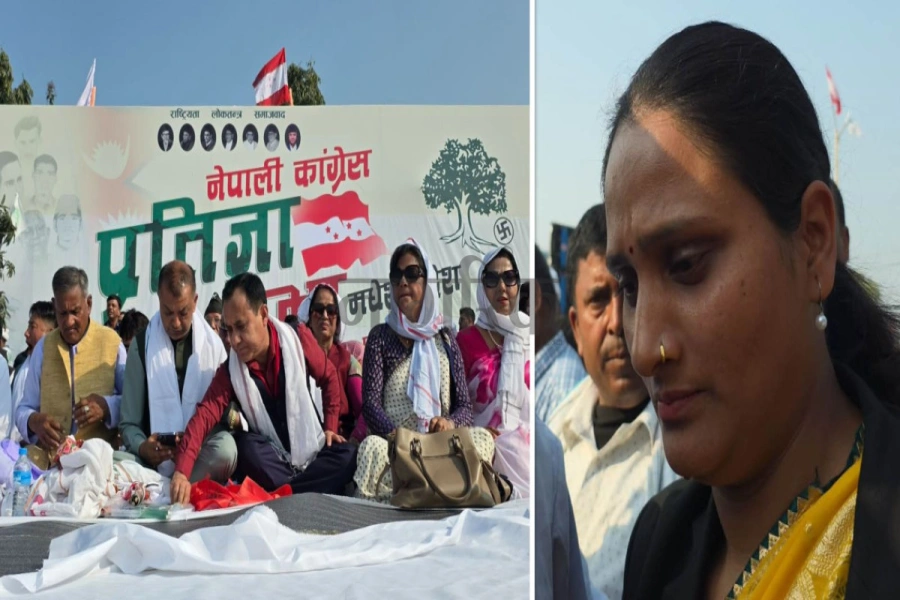KATHMANDU, May 12: The recommendation committee has proposed names for appointments to two transitional justice (TJ) commissions despite objections from victims' groups.
According to a source close to the committee, former Deputy Attorney General Mahesh Thapa has been recommended as Chairperson of the Truth and Reconciliation Commission (TRC), while former Chief Secretary Lila Devi Gautam has been recommended to the Commission of Investigation on Enforced Disappeared Persons (CIEDP).
These commissions have been without leadership since mid-July 2022 (Shrawan 2079). The committee has recommended five individuals, including a chairperson, for each of the two TJ commissions. The government had formed the committee specifically to recommend officials for these positions. As per the process, the recommended names will be approved and appointed by the Cabinet. However, Lily Thapa, a member and spokesperson of the committee, stated that the names cannot be made public at this time. “The recommendations have been finalized, but the names cannot be disclosed yet,” she told Republica.
The committee led by former Chief Justice Om Prakash Mishra was tasked with recommending officials for the two TJ commissions within two months. However, a previous committee formed under Mishra's leadership six months ago was dissolved after it failed to submit the recommendations.
Recommendation committee calls for applications for chairperson...

This time, however, the committee proceeded with the recommendations despite opposition from the conflict victims' community. Organizations representing conflict victims have expressed strong disagreement with the selection process, accusing political parties of dividing positions among themselves and failing to consult victims during the nomination process. They have also been staging protests against the recommendation procedure.
On Sunday, the conflict victims' community staged a sit-in protest at the National Human Rights Commission (NHRC) office, as the commission has a representative on the recommendation committee. The victims have argued that the NHRC should not be involved in the recommendation process. They expressed dissatisfaction over what they described as a forced and non-consultative recommendation, criticizing the lack of transparency and inclusion in the selection of commission officials.
Conflict victims' activist Ram Bhandari criticized the process, saying it reflects structural violence rather than TJ. He stated that justice cannot succeed by sidelining victims. “If the goal was simply political power-sharing, then why go through this process at all?” he questioned. “The political parties have acted dishonestly, and the recommendation committee has betrayed us,” he added.
He further stated that the commissions formed under such conditions would not receive support from the victims' community. “This recommendation committee was not formed for the victims,” he said. “It has recommended officials based on political party quotas, ignoring those disapproved by the victims. The people included in the recommendations are not individuals the victims recognize or trust,” he added.
It appears that the officials appointed through a process distrusted by conflict victims will face challenges in carrying out their duties. There are growing concerns that, like previous commission members who served two terms, the new appointees may also encounter non-cooperation from the victims' community.
After the recommendation committee made the list of applicants public, victims' groups called for the process to be halted. These conflict-affected organizations had initially submitted names of individuals they supported for consideration but later announced the withdrawal of those recommendations, expressing dissatisfaction with the overall process.
Out of the shortlisted candidates, victim organizations had recommended 28 individuals for the 10 official positions in the two commissions. The list of nominees included former Chief Justices, former Members of Parliament, and others. Following this, the recommendation committee released a shortlist of 34 candidates for the selection of officials in the two commissions.
Representatives from various conflict victim organizations have consistently demanded that capable and qualified individuals be selected through a credible, transparent, and public process. In a joint press statement, they urged authorities not to repeatedly politicize or undermine the pain and suffering caused by the conflict. Following the reformation of the recommendation committee, the victims publicly appealed to the government to ensure the committee operates in an impartial and independent manner.
A writ petition was filed in the Supreme Court (SC) on Monday, requesting the suspension of the committee's work in recommending officials for the two TJ commissions. Advocate Krishna Prasad Sharma raised questions regarding the recommendation committee and filed the writ. After an initial hearing, the SC called both parties for discussions regarding an interim order. The court has scheduled the next hearing for May 18.


































